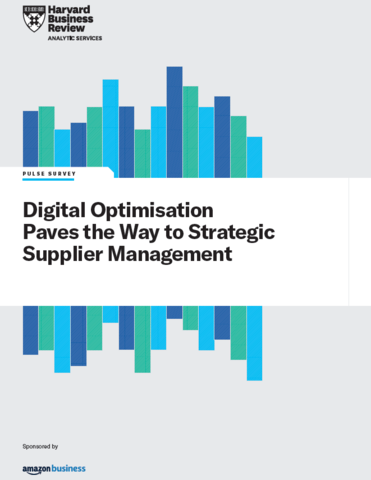Joining the debate in 2024: protecting your organisation's reputation in a polarised world
Sponsored by Fleishman Hillard
Some sage once said that reputation is what people say about you when you’re not around.
For companies and brands, getting to grips with reputation is trickier than ever. The landscape is rapidly shifting. Media don’t have the same influence that they used to. New voices constantly appear.
And 2024 is multiplying the complexity. More than 75 elections around the world. A geopolitical atmosphere increasingly defined by threat and potential conflict. A news environment riven with misinformation. And rapidly evolving – but sometimes diverging – public expectations of companies and brands.
Fleishman Hillard research found that 58 per cent of Gen Z and Millennials want businesses and business leaders to be more vocal and advocate positions on key issues during election periods. Meanwhile, Gen X and Baby Boomers aren’t that interested. Only 34 per cent of Gen X and 20 per cent of Baby Boomers want to hear from brands and businesses during campaign season.
A critical divide. How to navigate it? How to decide when to speak out and what to say?
It comes down to values.
For corporates and brands, speaking out can make a big difference. Expressing an authentic opinion can have a positive impact with investors, employees and stakeholders, customers and consumers. More importantly, business voices can constructively influence political debate and lead to better policy outcomes.
Businesses and brands can also act on issues where politics (and politicians) may fall short. But views on issues can only be authentic when they are indelibly connected to the company’s or brand’s values and when those values create an imperative for speaking out. Authenticity and credibility are even stronger when opinions are connected to a commercial imperative.
And inauthenticity can seriously damage reputation. Years of greenwashing and inauthentic overclaims on environmental issues from companies and brands have made audiences cynical about new claims, with more than half of Americans – 53 per cent – routinely or sometimes disbelieving them. And in the past 12 months, companies and brands have felt the effects of that cynicism through major consumer backlashes, negative commentary and adverse impacts on sales. And the negative consequences of misjudging the moment to speak out seem to grow more and more pronounced.
For CEOs and heads of corporate affairs, and brand leaders considering how to best navigate this increasingly complex landscape, there are three key steps to consider when jumping into the debate.

Preparation
Consider the issue, deliberate on your stance and decide whether there is either a strong link to your values, a commercial imperative, or both.
Then determine the audience you want to reach with your views. Often, employees are the loudest advocates for corporate or brand statements on issues. So, it may be enough to focus communications on your internal audiences.
If you want to go wider, consider building a more fully developed campaign, to give room – both substantively and creatively – to explain why your company’s or brand’s views are relevant, credible and well founded.
You’ll need to account for potential reaction and take steps to mitigate risks. Tone is vital. For some brands, light humour will help make the message impactful but soften the blow for people who might disagree. For others, explaining the context and rationale for speaking out will help. But thanks to political polarisation in many counties, expect some backlash and criticism no matter what you say or how you say it. Some people will be critical simply because you disagree with them.
So whatever mitigation steps you plan, be ready for that disagreement. And consider carefully whether speaking out in a way that appeals to a new or distant audience might alienate a key existing one.
Game out the best- and worst-case scenarios, and be ready to make quick, reactive decisions, well-informed by careful planning.
Listening
Challenge your assumptions about your audiences. Their views on issues may not follow neatly from the conventional wisdom or even generalised polling and research. Understand who among your audience groups and subgroups will be most affected and dig deep into conversations to inform your mitigation efforts and scenario planning. Use all of this insight to target your views to the audience groups where they will have the most impact and influence.
Once you have started communicating your views, keep listening. Look for surprises, recognise that not all reaction is a threat, but remain vigilant and be ready to act quickly to clarify misunderstanding and dispel wilful mischaracterisation. Understanding the nuance in the audience’s reaction is key to success.
Respecting cultural forces
Your perspective on an issue will be deeply held and rooted in your values, but if your expressions fail to recognise the cultural climate and respect your audiences, they might still fail.
When it comes to issues, companies and brands usually couch their views in rational argument. But in today’s climate, rational thought is rarely winning the day. People are instead responding to emotional and psychological cues picked up in culture.
Deep cultural understanding should inform tone and plans for risk mitigation.
But there’s a much simpler expression of this imperative. Be human. Admit limitations. Be open about the inevitable shortcomings of your views. Show respect for contrary views. Psychological studies have shown that admitting some uncertainty actually enhances credibility.
In this, the Year of Elections, contributing to the debate might be good for society and right for your business or brand. Considered carefully, informed by listening, and sensitive to cultural forces you can reduce the risk your business or brand and help make a difference in the world.
For more information, visit linkedin.com/fleishmanhillard-uk
Nina Bautista, Head of Consumer and Brand Communications, Fleishman Hillard and Judith Moore, Managing Director, Corporate, Fleishman Hillard

Business Reporter Team
Most Viewed
23-29 Hendon Lane, London, N3 1RT
23-29 Hendon Lane, London, N3 1RT
020 8349 4363
© 2024, Lyonsdown Limited. Business Reporter® is a registered trademark of Lyonsdown Ltd. VAT registration number: 830519543





